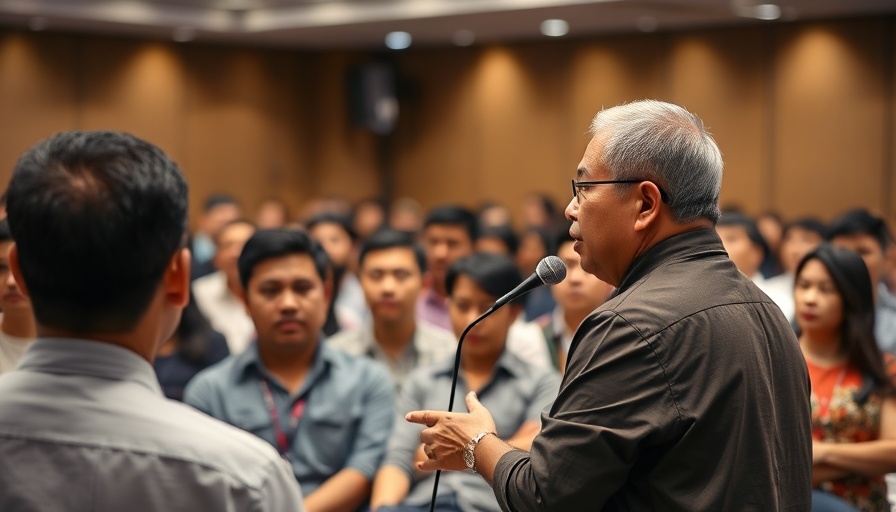
The War on Drugs: A Deeply Divisive Legacy
Former President Rodrigo Duterte's brutal 'war on drugs' marked one of the darkest chapters in Philippine history. From 2016 to 2022, this campaign led to the extrajudicial killings of thousands, which not only wrought personal tragedies but also severely fractured the country’s legal and civil frameworks. As Duterte faces justice in The Hague after being arrested for crimes against humanity, the Philippine civil society grapples with the long-term impacts of his controversial policies. With his capture, advocates are hopeful for a decisive shift towards accountability.
What Does This Mean for Justice?
The successful arrest of Duterte serves as a landmark achievement for the International Criminal Court (ICC), which has faced much scrutiny and criticism for its slow progress and lack of convictions. Currently, the court is viewed as having the potential to regain credibility through the prosecution of a high-profile figure like Duterte. "This is a crucial step for accountability in the Philippines," stated Danya Chaikel from the International Federation for Human Rights, emphasizing the need for stringent examination of past actions.
The Ripple Effects on Community Safety
Beyond the immediate framework of law, Duterte's war on drugs has left a palpable fear in the hearts of many Filipinos, particularly among vulnerable communities. Human Rights Watch noted that this atmosphere of fear impacts effective law enforcement and inhibits citizens from reporting crimes or seeking legal assistance due to a lack of trust in the justice system. Thus, the struggle for reform must address this sense of insecurity to create a more trustworthy societal environment.
The Road Ahead: Hope for Reform
As the Philippines moves forward from this tumultuous era, many grassroots organizations are leading the charge for reform, advocating for a more humane approach to drug addiction that focuses on treatment and rehabilitation instead of violence. The potential for ecological advocacy to intermingle with human rights movements has leaders from both spaces collaborating for policy changes that could result in improved living conditions. Initiatives like sustainable agriculture and community gardening not only promote fresh food access but also influence mental well-being—addressing the intersectional needs of society.
How Social Movements Are Shaping Future Policy
With Duterte's era inspiring heightened activism among youth and civil society, the push for accountability is likely to resonate throughout the political fabric of the Philippines. Voices from various sectors are rallying to promote transparency and demand justice for victims. It is essential that these movements champion a new framework of justice that incorporates sustainability, social equity, and human rights, paving the way for a cohesive approach to national recovery.
Reimagining Law and Society
Ultimately, the societal shift needed in the Philippines is not just about punitive measures but envisioning a future that prioritizes human dignity, sustainable development, and a collaborative environment where laws are respected and upheld equitably. Advocates argue that for the nation to heal, there must be a concerted effort to implement transformational legal reforms that align with global standards of human rights.
Moving Towards Accountability
The Philippines stands at a crossroad, as the recent events concerning Duterte open discussions around accountability and justice that have long been swept under the rug. The arrest signals hope to many advocates that mechanisms exist to curb abuses of power, but this hope must be continually nurtured and translated into grassroots movements advocating for enduring change. Change begins with engaged citizens who prioritize sustainability in law, seeking an eco-conscious campaign leading toward embodied ethics in governance.
 Add Row
Add Row  Add
Add 



Write A Comment